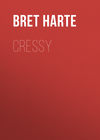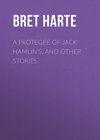Читать книгу: «Legends and Tales»
THE LEGEND OF MONTE DEL DIABLO
The cautious reader will detect a lack of authenticity in the following pages. I am not a cautious reader myself, yet I confess with some concern to the absence of much documentary evidence in support of the singular incident I am about to relate. Disjointed memoranda, the proceedings of ayuntamientos and early departmental juntas, with other records of a primitive and superstitious people, have been my inadequate authorities. It is but just to state, however, that though this particular story lacks corroboration, in ransacking the Spanish archives of Upper California I have met with many more surprising and incredible stories, attested and supported to a degree that would have placed this legend beyond a cavil or doubt. I have, also, never lost faith in the legend myself, and in so doing have profited much from the examples of divers grant-claimants, who have often jostled me in their more practical researches, and who have my sincere sympathy at the scepticism of a modern hard-headed and practical world.
For many years after Father Junipero Serro first rang his bell in the wilderness of Upper California, the spirit which animated that adventurous priest did not wane. The conversion of the heathen went on rapidly in the establishment of Missions throughout the land. So sedulously did the good Fathers set about their work, that around their isolated chapels there presently arose adobe huts, whose mud-plastered and savage tenants partook regularly of the provisions, and occasionally of the Sacrament, of their pious hosts. Nay, so great was their progress, that one zealous Padre is reported to have administered the Lord’s Supper one Sabbath morning to “over three hundred heathen Salvages.” It was not to be wondered that the Enemy of Souls, being greatly incensed thereat, and alarmed at his decreasing popularity, should have grievously tempted and embarrassed these Holy Fathers, as we shall presently see.
Yet they were happy, peaceful days for California. The vagrant keels of prying Commerce had not as yet ruffled the lordly gravity of her bays. No torn and ragged gulch betrayed the suspicion of golden treasure. The wild oats drooped idly in the morning heat, or wrestled with the afternoon breezes. Deer and antelope dotted the plain. The watercourses brawled in their familiar channels, nor dreamed of ever shifting their regular tide. The wonders of the Yosemite and Calaveras were as yet unrecorded. The Holy Fathers noted little of the landscape beyond the barbaric prodigality with which the quick soil repaid the sowing. A new conversion, the advent of a Saint’s day, or the baptism of an Indian baby, was at once the chronicle and marvel of their day.
At this blissful epoch there lived at the Mission of San Pablo Father Jose Antonio Haro, a worthy brother of the Society of Jesus. He was of tall and cadaverous aspect. A somewhat romantic history had given a poetic interest to his lugubrious visage. While a youth, pursuing his studies at famous Salamanca, he had become enamored of the charms of Dona Carmen de Torrencevara, as that lady passed to her matutinal devotions. Untoward circumstances, hastened, perhaps, by a wealthier suitor, brought this amour to a disastrous issue; and Father Jose entered a monastery, taking upon himself the vows of celibacy. It was here that his natural fervor and poetic enthusiasm conceived expression as a missionary. A longing to convert the uncivilized heathen succeeded his frivolous earthly passion, and a desire to explore and develop unknown fastnesses continually possessed him. In his flashing eye and sombre exterior was detected a singular commingling of the discreet Las Casas and the impetuous Balboa.
Fired by this pious zeal, Father Jose went forward in the van of Christian pioneers. On reaching Mexico, he obtained authority to establish the Mission of San Pablo. Like the good Junipero, accompanied only by an acolyte and muleteer, he unsaddled his mules in a dusky canyon, and rang his bell in the wilderness. The savages—a peaceful, inoffensive, and inferior race—presently flocked around him. The nearest military post was far away, which contributed much to the security of these pious pilgrims, who found their open trustfulness and amiability better fitted to repress hostility than the presence of an armed, suspicious, and brawling soldiery. So the good Father Jose said matins and prime, mass and vespers, in the heart of Sin and Heathenism, taking no heed to himself, but looking only to the welfare of the Holy Church. Conversions soon followed, and, on the 7th of July, 1760, the first Indian baby was baptized,—an event which, as Father Jose piously records, “exceeds the richnesse of gold or precious jewels or the chancing upon the Ophir of Solomon.” I quote this incident as best suited to show the ingenious blending of poetry and piety which distinguished Father Jose’s record.
The Mission of San Pablo progressed and prospered until the pious founder thereof, like the infidel Alexander, might have wept that there were no more heathen worlds to conquer. But his ardent and enthusiastic spirit could not long brook an idleness that seemed begotten of sin; and one pleasant August morning, in the year of grace 1770, Father Jose issued from the outer court of the Mission building, equipped to explore the field for new missionary labors.
Nothing could exceed the quiet gravity and unpretentiousness of the little cavalcade. First rode a stout muleteer, leading a pack-mule laden with the provisions of the party, together with a few cheap crucifixes and hawks’ bells. After him came the devout Padre Jose, bearing his breviary and cross, with a black serapa thrown around his shoulders; while on either side trotted a dusky convert, anxious to show a proper sense of their regeneration by acting as guides into the wilds of their heathen brethren. Their new condition was agreeably shown by the absence of the usual mud-plaster, which in their unconverted state they assumed to keep away vermin and cold. The morning was bright and propitious. Before their departure, mass had been said in the chapel, and the protection of St. Ignatius invoked against all contingent evils, but especially against bears, which, like the fiery dragons of old, seemed to cherish unconquerable hostility to the Holy Church.
As they wound through the canyon, charming birds disported upon boughs and sprays, and sober quails piped from the alders; the willowy water-courses gave a musical utterance, and the long grass whispered on the hillside. On entering the deeper defiles, above them towered dark green masses of pine, and occasionally the madrono shook its bright scarlet berries. As they toiled up many a steep ascent, Father Jose sometimes picked up fragments of scoria, which spake to his imagination of direful volcanoes and impending earthquakes. To the less scientific mind of the muleteer Ignacio they had even a more terrifying significance; and he once or twice snuffed the air suspiciously, and declared that it smelt of sulphur. So the first day of their journey wore away, and at night they encamped without having met a single heathen face.
It was on this night that the Enemy of Souls appeared to Ignacio in an appalling form. He had retired to a secluded part of the camp and had sunk upon his knees in prayerful meditation, when he looked up and perceived the Arch-Fiend in the likeness of a monstrous bear. The Evil One was seated on his hind legs immediately before him, with his fore paws joined together just below his black muzzle. Wisely conceiving this remarkable attitude to be in mockery and derision of his devotions, the worthy muleteer was transported with fury. Seizing an arquebuse, he instantly closed his eyes and fired. When he had recovered from the effects of the terrific discharge, the apparition had disappeared. Father Jose, awakened by the report, reached the spot only in time to chide the muleteer for wasting powder and ball in a contest with one whom a single ave would have been sufficient to utterly discomfit. What further reliance he placed on Ignacio’s story is not known; but, in commemoration of a worthy Californian custom, the place was called La Canada de la Tentacion del Pio Muletero, or “The Glen of the Temptation of the Pious Muleteer,” a name which it retains to this day.
The next morning the party, issuing from a narrow gorge, came upon a long valley, sear and burnt with the shadeless heat. Its lower extremity was lost in a fading line of low hills, which, gathering might and volume toward the upper end of the valley, upheaved a stupendous bulwark against the breezy North. The peak of this awful spur was just touched by a fleecy cloud that shifted to and fro like a banneret. Father Jose gazed at it with mingled awe and admiration. By a singular coincidence, the muleteer Ignacio uttered the simple ejaculation “Diablo!”
As they penetrated the valley, they soon began to miss the agreeable life and companionable echoes of the canyon they had quitted. Huge fissures in the parched soil seemed to gape as with thirsty mouths. A few squirrels darted from the earth, and disappeared as mysteriously before the jingling mules. A gray wolf trotted leisurely along just ahead. But whichever way Father Jose turned, the mountain always asserted itself and arrested his wandering eye. Out of the dry and arid valley, it seemed to spring into cooler and bracing life. Deep cavernous shadows dwelt along its base; rocky fastnesses appeared midway of its elevation; and on either side huge black hills diverged like massy roots from a central trunk. His lively fancy pictured these hills peopled with a majestic and intelligent race of savages; and looking into futurity, he already saw a monstrous cross crowning the dome-like summit. Far different were the sensations of the muleteer, who saw in those awful solitudes only fiery dragons, colossal bears and break-neck trails. The converts, Concepcion and Incarnacion, trotting modestly beside the Padre, recognized, perhaps, some manifestation of their former weird mythology.
At nightfall they reached the base of the mountain. Here Father Jose unpacked his mules, said vespers, and, formally ringing his bell, called upon the Gentiles within hearing to come and accept the Holy Faith. The echoes of the black frowning hills around him caught up the pious invitation, and repeated it at intervals; but no Gentiles appeared that night. Nor were the devotions of the muleteer again disturbed, although he afterward asserted, that, when the Father’s exhortation was ended, a mocking peal of laughter came from the mountain. Nothing daunted by these intimations of the near hostility of the Evil One, Father Jose declared his intention to ascend the mountain at early dawn; and before the sun rose the next morning he was leading the way.
The ascent was in many places difficult and dangerous. Huge fragments of rock often lay across the trail, and after a few hours’ climbing they were forced to leave their mules in a little gully, and continue the ascent afoot. Unaccustomed to such exertion, Father Jose often stopped to wipe the perspiration from his thin cheeks. As the day wore on, a strange silence oppressed them. Except the occasional pattering of a squirrel, or a rustling in the chimisal bushes, there were no signs of life. The half-human print of a bear’s foot sometimes appeared before them, at which Ignacio always crossed himself piously. The eye was sometimes cheated by a dripping from the rocks, which on closer inspection proved to be a resinous oily liquid with an abominable sulphurous smell. When they were within a short distance of the summit, the discreet Ignacio, selecting a sheltered nook for the camp, slipped aside and busied himself in preparations for the evening, leaving the Holy Father to continue the ascent alone. Never was there a more thoughtless act of prudence, never a more imprudent piece of caution. Without noticing the desertion, buried in pious reflection, Father Jose pushed mechanically on, and, reaching the summit, cast himself down and gazed upon the prospect.
Below him lay a succession of valleys opening into each other like gentle lakes, until they were lost to the southward. Westerly the distant range hid the bosky canada which sheltered the mission of San Pablo. In the farther distance the Pacific Ocean stretched away, bearing a cloud of fog upon its bosom, which crept through the entrance of the bay, and rolled thickly between him and the northeastward; the same fog hid the base of mountain and the view beyond. Still, from time to time the fleecy veil parted, and timidly disclosed charming glimpses of mighty rivers, mountain defiles, and rolling plains, sear with ripened oats, and bathed in the glow of the setting sun. As Father Jose gazed, he was penetrated with a pious longing. Already his imagination, filled with enthusiastic conceptions, beheld all that vast expanse gathered under the mild sway of the Holy Faith, and peopled with zealous converts. Each little knoll in fancy became crowned with a chapel; from each dark canyon gleamed the white walls of a mission building. Growing bolder in his enthusiasm, and looking farther into futurity, he beheld a new Spain rising on these savage shores. He already saw the spires of stately cathedrals, the domes of palaces, vineyards, gardens, and groves. Convents, half hid among the hills, peeping from plantations of branching limes; and long processions of chanting nuns wound through the defiles. So completely was the good Father’s conception of the future confounded with the past, that even in their choral strain the well-remembered accents of Carmen struck his ear. He was busied in these fanciful imaginings, when suddenly over that extended prospect the faint, distant tolling of a bell rang sadly out and died. It was the Angelus. Father Jose listened with superstitious exaltation. The mission of San Pablo was far away, and the sound must have been some miraculous omen. But never before, to his enthusiastic sense, did the sweet seriousness of this angelic symbol come with such strange significance. With the last faint peal, his glowing fancy seemed to cool; the fog closed in below him, and the good Father remembered he had not had his supper. He had risen and was wrapping his serapa around him, when he perceived for the first time that he was not alone.
Nearly opposite, and where should have been the faithless Ignacio, a grave and decorous figure was seated. His appearance was that of an elderly hidalgo, dressed in mourning, with mustaches of iron-gray carefully waxed and twisted around a pair of lantern-jaws. The monstrous hat and prodigious feather, the enormous ruff and exaggerated trunk-hose, contrasted with a frame shrivelled and wizened, all belonged to a century previous. Yet Father Jose was not astonished. His adventurous life and poetic imagination, continually on the lookout for the marvellous, gave him a certain advantage over the practical and material minded. He instantly detected the diabolical quality of his visitant, and was prepared. With equal coolness and courtesy he met the cavalier’s obeisance.
“I ask your pardon, Sir Priest,” said the stranger, “for disturbing your meditations. Pleasant they must have been, and right fanciful, I imagine, when occasioned by so fair a prospect.”
“Worldly, perhaps, Sir Devil,—for such I take you to be,” said the Holy Father, as the stranger bowed his black plumes to the ground; “worldly, perhaps; for it hath pleased Heaven to retain even in our regenerated state much that pertaineth to the flesh, yet still, I trust, not without some speculation for the welfare of the Holy Church. In dwelling upon yon fair expanse, mine eyes have been graciously opened with prophetic inspiration, and the promise of the heathen as an inheritance hath marvellously recurred to me. For there can be none lack such diligence in the True Faith, but may see that even the conversion of these pitiful salvages hath a meaning. As the blessed St. Ignatius discreetly observes,” continued Father Jose, clearing his throat and slightly elevating his voice, “‘the heathen is given to the warriors of Christ, even as the pearls of rare discovery which gladden the hearts of shipmen.’ Nay, I might say—”
But here the stranger, who had been wrinkling his brows and twisting his mustaches with well-bred patience, took advantage of an oratorical pause:—
“It grieves me, Sir Priest, to interrupt the current of your eloquence as discourteously as I have already broken your meditations; but the day already waneth to night. I have a matter of serious import to make with you, could I entreat your cautious consideration a few moments.”
Father Jose hesitated. The temptation was great, and the prospect of acquiring some knowledge of the Great Enemy’s plans not the least trifling object. And if the truth must be told, there was a certain decorum about the stranger that interested the Padre. Though well aware of the Protean shapes the Arch-Fiend could assume, and though free from the weaknesses of the flesh, Father Jose was not above the temptations of the spirit. Had the Devil appeared, as in the case of the pious St. Anthony, in the likeness of a comely damsel, the good Father, with his certain experience of the deceitful sex, would have whisked her away in the saying of a paternoster. But there was, added to the security of age, a grave sadness about the stranger,—a thoughtful consciousness as of being at a great moral disadvantage,—which at once decided him on a magnanimous course of conduct.
Покупайте книги и получайте бонусы в Литрес, Читай-городе и Буквоеде.
Участвовать в бонусной программе




















